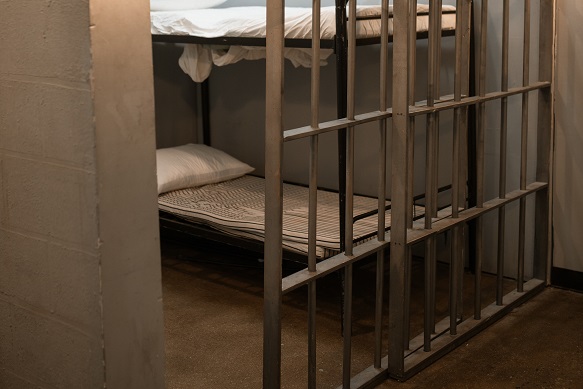Missouri’s inmates are overdosing at high rates.
There has been a significant spike in opioid-related deaths recently in Missouri’s prison system, with many prisoners having fatally overdosed. Victim range in age from 23 to 42, and the data was collected from a sample gathered from county coroners. Yet, it seems the matter has largely been kept “hush-hush.” Potosi Correctional Center alone has seen seven fatalities and there is an eighth that is likely linked to an opioid overdose.
Missouri’s Potosi Correctional Center alone has seen seven fatalities and there is an eighth that is likely linked to an opioid overdose.
“I have no idea how or why, other than obviously drugs are getting inside the prison,” Washington County Coroner Steve Hatfield said.
Eastern Reception, Diagnostic and Correctional Center in Bonne Terre, Missouri, has witnessed five opioid-related deaths with three of those occurring in October alone.

St. Francois County Coroner Jason Coplin said autopsy and toxicology findings are still pending. Yet, he is treating each as an overdose death. “They are getting in during visiting hours,” Coplin said. “That’s the only thing I can think of.”
South Central Correctional Center in Licking, Missouri, has had six opioid-related fatalities since June of this year. Texas County Coroner Marie Lasater said, “Five are presumed overdoses. One, involving Christopher Scroggins, was confirmed by autopsy and toxicology.” She added that the fentanyl found in his system was a “cartel blend. It’s much stronger than what’s used in the hospital.”
Missouri Department of Corrections administrative office spokeswoman Karen Pojmann commented, “All facilities struggle with the challenge of keeping drugs and other dangerous contraband out of prisons. To answer your question, we would have to gather data, including medical records, autopsy reports, incident reports and other relevant information and conduct a comparative analysis. At this point, we don’t have all of the toxicology reports from recent deaths.”
Unfortunately, there is currently a backlog of toxicology reports bogging down the state’s system. So, it’s taking time to sort through each of the fatalities to determine exactly which drugs led to the overdoses. For example, Kaleb Smith, 27, an inmate in Licking, passed away in late-August and his family is growing impatient waiting for answers.
“As of this point, we still don’t know how or why he died,” said Mike Smith, an uncle. “The prison has only said they are conducting an internal investigation…Nobody is cooperating with us.”
Since it appears that the drugs are being mailed into prisons, the state is now scanning every personal letter addressed to inmates and delivering these electronically. Other types of mail may still be sent directly to the inmates, including information about legal proceedings and other official mailings. Because Missouri’s corrections department has struggled to keep its prisons staffed in recent years, qualifications for employment have also lowered drastically. And there is the issue of drugs being distributed candidly by these employees.
State prison records indicate that “75% of offenders need drug treatment.” An overwhelming number of inmates are struggling.
To cut down on the number of deaths throughout the state, Missouri has initiated an effort to distribute Narcan in at-risk communities but so far the prison system has been excluded.
Tim Cutt, director of the Missouri Corrections Officers Association, explained, “Only medical personnel are authorized to administer Narcan. Corrections officers, he said, are allowed to carry pepper spray and handcuffs. I would say my staff doesn’t want to carry (Narcan) because it could increase their liability if something went wrong.”
Sources:
Missouri prison system mum about apparent spike in opioid deaths


Join the conversation!